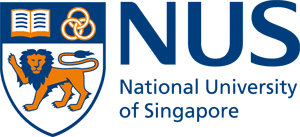Eco-friendly Industrial Wastewater Reuse by Adding Electricity
Published on by Water Network Research, Official research team of The Water Network in Academic
NUS researchers here have found a new way to recycle industrial waste water using electricity, which can remove up to 99% of impurities without using chemicals or generating sludge.
 The NUS-developed system operates on low electrical power and does not generate secondary waste, such as sludge, that requires further costly residual waste processing such as incineration.
The NUS-developed system operates on low electrical power and does not generate secondary waste, such as sludge, that requires further costly residual waste processing such as incineration.
“Despite the great advances in wastewater treatment technologies, the removal of refractory organic compounds remains a costly and challenging process. Our invention provides an environmentally-friendly solution and helps to raise the overall standard of industrial wastewater treatment,” said Assistant Professor Olivier Lefebvre from the Department of Civil and Environmental Engineering at NUS Faculty of Engineering, who is the leader of the research team.
For instance, wastewater from the electronics and pharmaceutical industries may contain high concentration of solvents and mixtures of complex organic substances, while wastewater from farmlands may contain high concentration of pesticides or herbicides. These organic compounds are not biodegradable and can be harmful to humans and the environment.
“Our electrochemical system has shown that it can achieve complete mineralisation of any organic pollutant. This means the system can completely remove organic compounds in the wastewater by degrading them into water and carbon dioxide. This novel system can also be incorporated as a pre-treatment to an existing wastewater treatment scheme. It operates on low electrical power and the system could easily be combined with solar power and other purification methods such as using membranes and biological treatments,” explained Asst Prof Lefebvre.
The treatment begins with the pumping of wastewater into the system’s chamber. As electric current is passed, electrodes in the chamber generate hydrogen peroxide and hydroxyl radical (one of the most powerful oxidising agents) that will react with the complex organic compounds in the water. The generated hydrogen peroxide and hydroxyl radical are completely used up during the treatment and they continuously break down the complex compounds into simpler molecules, until all organic contaminants have been degraded into water and carbon dioxide.
Source: NUS
Media
Taxonomy
- Electrocoagulation
- Industrial Wastewater Treatment
- Waste Water Treatments
- Purification
- Technology
- Wastewater Treatment
- Water Purification